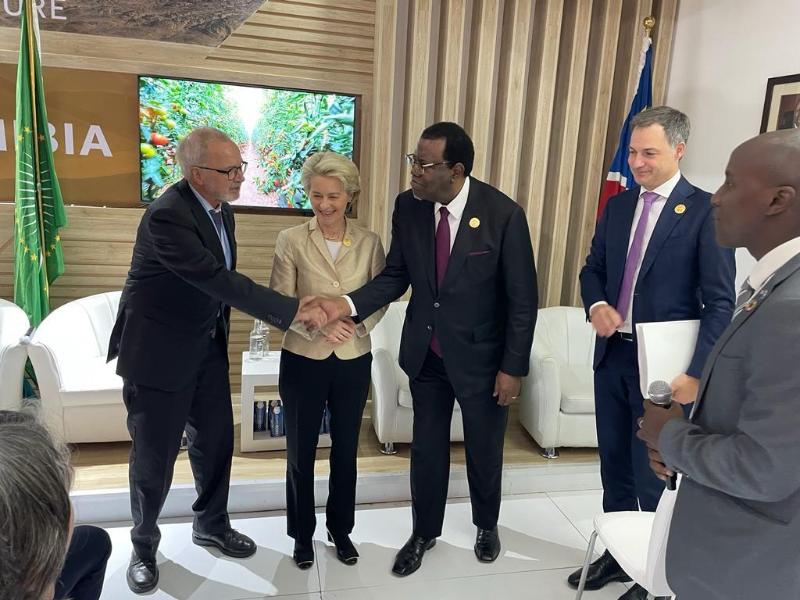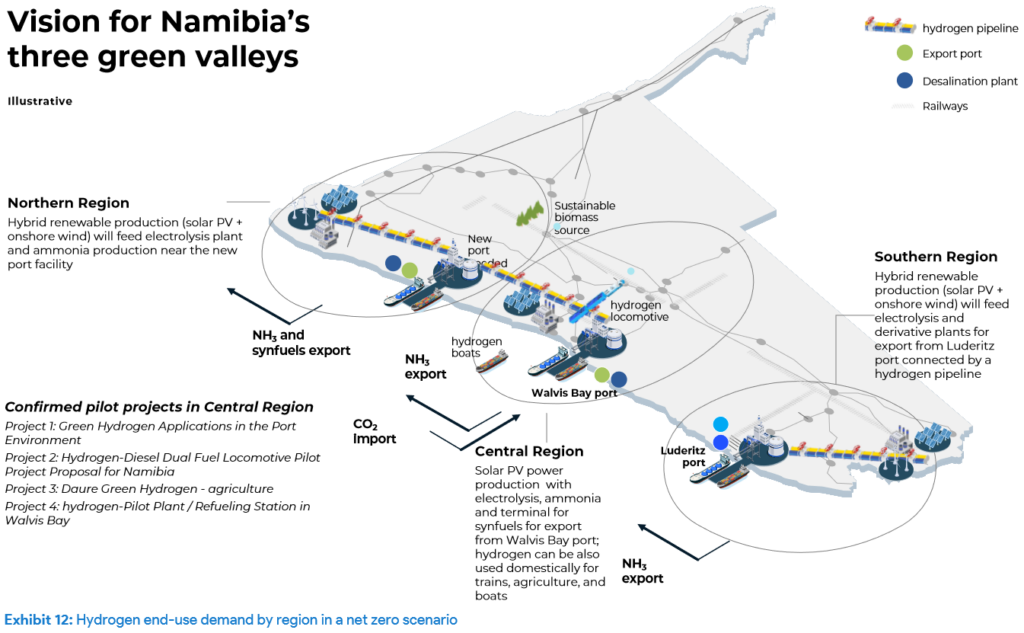COP27: EU forms new partnerships
By Julian Atchison on December 02, 2022
Namibia

European Commission President Ursula von der Leyen and Namibian President Hage Geingob signed a new strategic partnership in Sharm el-Sheikh, agreeing to cooperate on sustainable raw materials and the production of renewable hydrogen in the African country. In parallel, the European Investment Bank has agreed to a potential loan of €500 million to Namibia’s government to help finance renewable hydrogen investments, and also agreed to support French developer Hydrogène de France in the development of a hydrogen power plant in the Namibian city of Swakopmund.
This week Namibia also released its national hydrogen strategy (click to download pdf). By 2050, the government aspires to develop an at-scale green fuels industry, producing 10 – 12 million tonnes per year of “hydrogen equivalent”. Production will be centered on three “hydrogen valleys” in Namibia, with ammonia to be produced and exported from three key ports.

Kazakhstan
The EU and Kazakhstan will cooperate on battery and renewable hydrogen value chains, particularly on critical raw materials needed for clean energy rollout: wind turbines (rare earth magnets); batteries (lithium and cobalt) and semiconductors (polysilicon).
Egypt
And the EU and Egypt will cooperate to accelerate the deployment of renewable energy generation. Together, they will work to boost the “production, storage, distribution and transport of renewable hydrogen and its derivatives”. The sustainable use of water for electrolysis – a critical consideration in Egypt – will also be assessed by the two.
H2Global: ready to launch
Also in Sharm el-Sheikh, German Chancellor Olaf Scholtz updated attendees on the progress of H2Global, the government initiative designed to ramp-up the import of P-to-X products like ammonia into the EU. Scholtz announced that Germany will invest more than €4 billion into the pay-for-difference initiative, with the first tender process to be launched in the coming weeks. Deliveries from the first tender round could arrive in the EU by 2024.